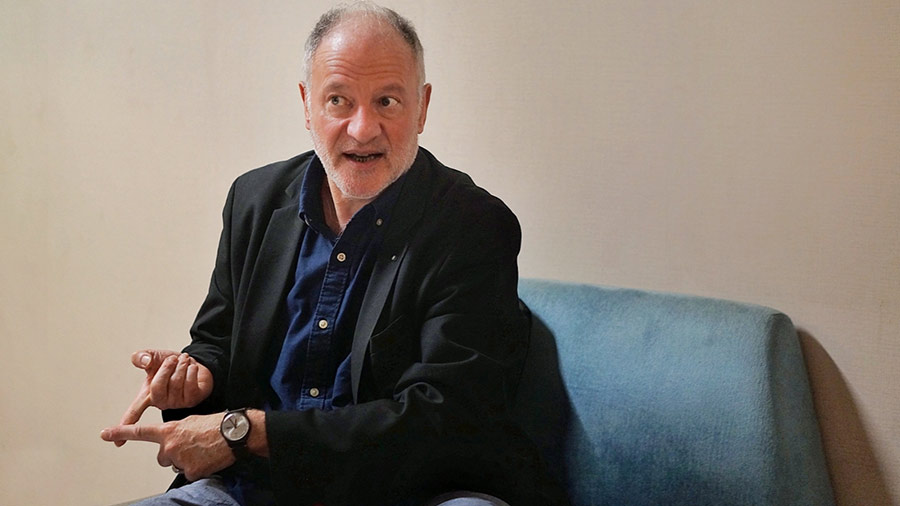
“I keep coming back to India because of its people. Their warmth and affection is something that keeps pulling me back,” said Jean-Claude Perrier at the Kolkata launch of ‘Like Barbarians in India’ at Alliance Francaise du Bengale on March 1. Originally written by Perrier in French in 2014, the book was translated into English by Sriparna Chatterjee for publication by Niyogi Books this year. Having first visited India in 1981 as a 24-year-old journalist, Perrier recollected how the country has had a deep influence on him through its “civilisational spirit”
Photos: Soumyajit Dey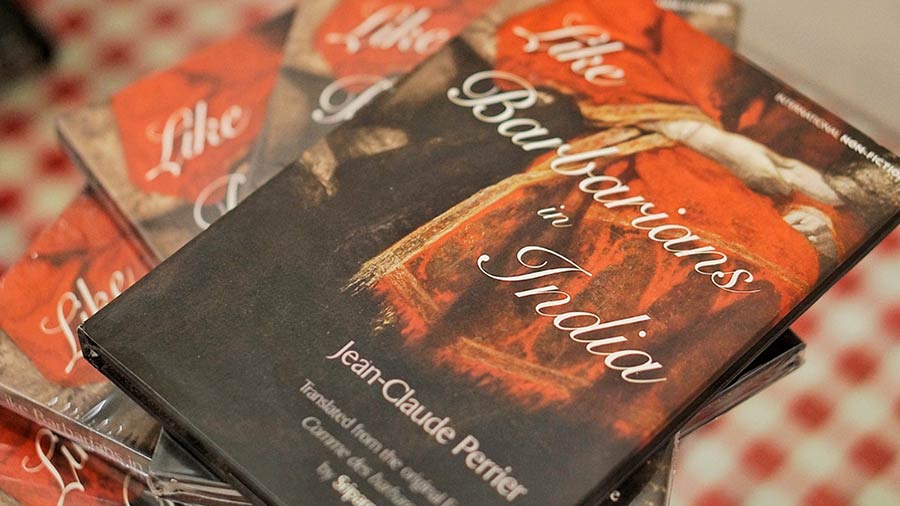
‘Like Barbarians in India’ documents Perrier’s personal relationship with India over four decades, interspersing it with his insights on four French writers who wrote extensively about India and engaged considerably with Indians and Indian culture. Among them are Pierre Loti, who imagined an India that had not been colonised; Henri Michaux, whose work ‘A Barbarian in Asia’ inspired the title of Perrier’s book; Andre Malraux, who knew Jawaharlal Nehru and Indira Gandhi personally; and Jean Gide, who, in spite of never visiting India, had translated Rabindranath Tagore and Kabir into French
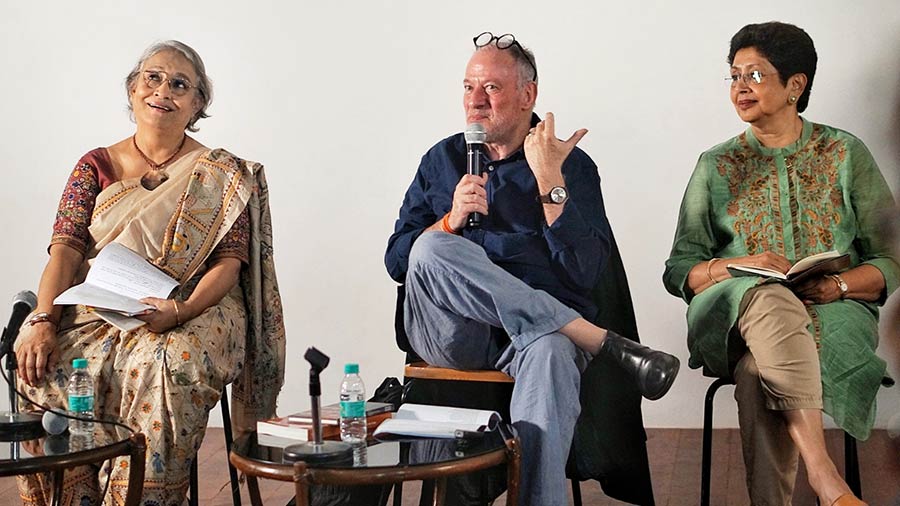
Following the unveiling of the book, Perrier was part of a conversation involving Chatterjee (right) and Kanchana Mukhopadhyay, translator and bookseller. Held mostly in French, the discussion shed light on Perrier’s evolving impressions of India and also involved the author and the translator reading excerpts from the book in French and English, respectively
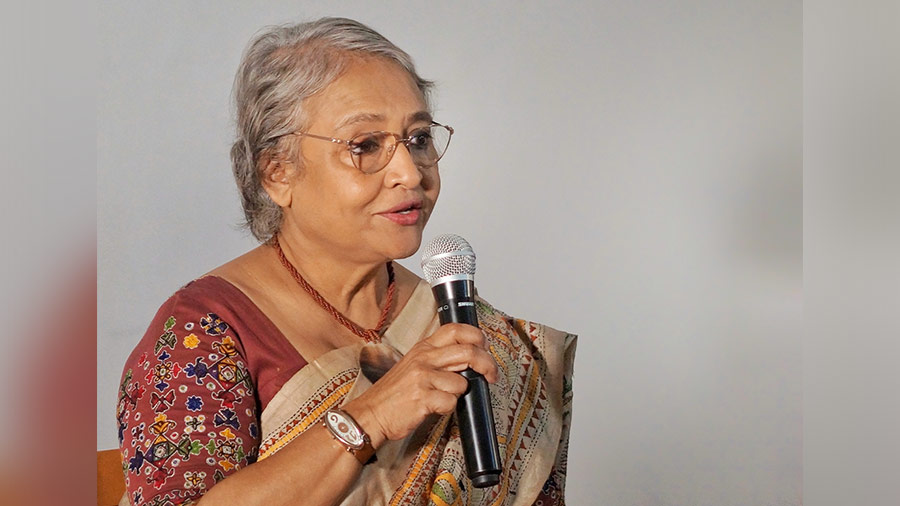
Mukhopadhyay probed Perrier about delving into the thoughts and ideas of four iconic writers while also crediting him for keeping alive the tradition of French intellectuals coming to India. “He’s one of the most distinguished French writers of his time, who’s been duly recognised for his literary excellence back in France. It was a pleasure to interact with him and get to know some of the stories that explain his love for India,” observed Mukhopadhyay
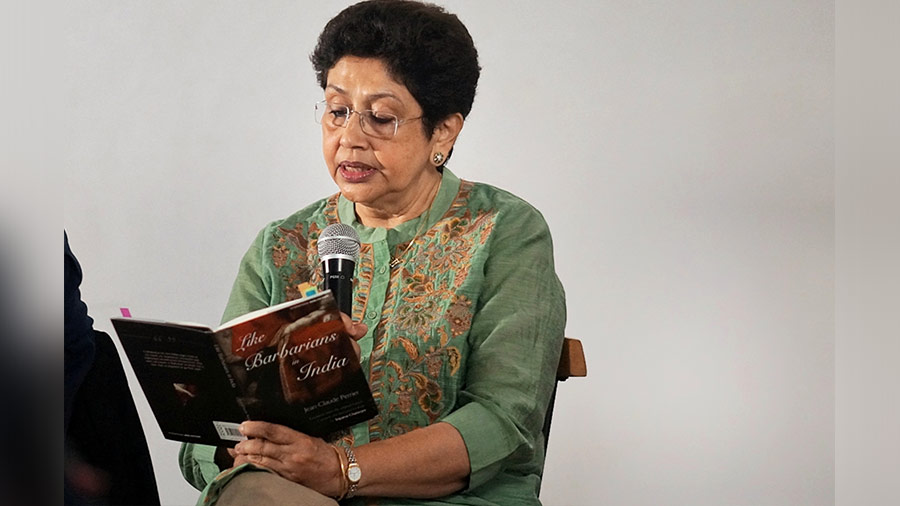
Speaking about the process of translating the book into English, Chatterjee, who used to teach French for several years at Alliance Francaise, said: “I wanted to stay true to the style of Perrier as much as possible. I didn’t want it to become a process of transcreation. It turned out to be an enriching experience for me not just because I got to know Perrier’s insights into India through the lens of a Frenchman, but also because he allowed me to explore four other writers, who are all fascinating in their own ways.”
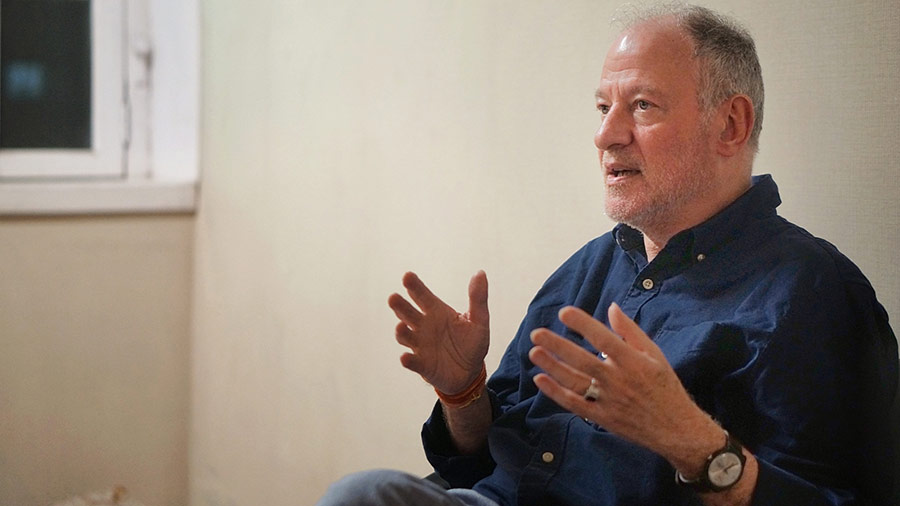
“Over the last 10 years or so, India has come to occupy a far more important place in the world order, as is evident from its current presidency of G20. The world is shifting from the West to the East, and India has a key role to play in that transition. It’s my hope that India can retain its values and civilisational legacy through this stage and emerge as one of the greatest forces of the 21st century,” added Perrier




